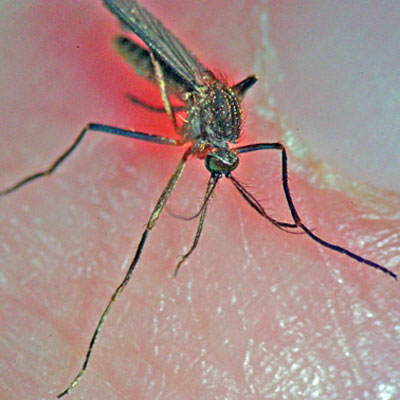
As the summer rains in Florida create breeding grounds for mosquitos and other arthropods, the public should remain aware of the potential danger of diseases transmitted by arthropods.
Arboviral diseases are viruses that are arthropod-borne, and are maintained in nature by transmission from one host to the next by arthropods such as mosquitos and ticks that feed on blood http://www.cdc.gov/ncidod/dvbid/Arbor/index.htm . Encephalitis diseases are important diseases of humans and domesticated animals, and are often compatible with a variety of hosts and transmitted by a variety of blood feeding arthropods. You can track the most up to date cases of these diseases in the United States with maps provided by USGS http://diseasemaps.usgs.gov/index.html . This EDIS publication describes some of the important mosquito pests that are responsible for arboviral disease transmission http://edis.ifas.ufl.edu/in851 . There are also floodwater mosquitos and standing-water mosquitos as described in this EDIS publication: http://edis.ifas.ufl.edu/in535 .
Whether you are planning to go hiking, horseback riding, or simply backyard gardening during the rainy summer and hurricane season here in Florida, remember to regularly check the USGS disease maps for arboviral disease cases and go out with full clothing cover and insect repellant.
The Florida Department of Health Weekly Arbovirus Reports are available at: http://www.doh.state.fl.us/Environment/medicine/arboviral/Weekly-Summary.html
According to the latest report (June 8, 2013 http://www.doh.state.fl.us/Environment/medicine/arboviral/Weekly-Summary.html ), no locally acquired cases of dengue have occurred in 2013. Forty cases of imported dengue and twenty-one cases of imported Malaria have occurred. Two human cases of Eastern Equine Encephalitis have occurred.
Content for this UF-IFAS Pest Alert was prepared by DPM Graduate Student Eric LeVeen (eleveen@ufl.edu ).
 0
0
